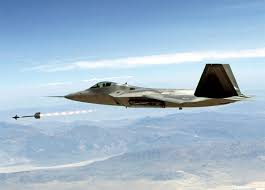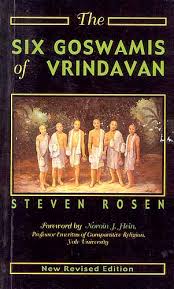por ISKCON desire tree
Appearance of Lord Nityananda ISKCON San Diego 2010
Appearance of Lord Nityananda ISKCON San Diego 2010

Appearance of Lord Nityananda ISKCON San Diego 2010

Appearance of Lord Nityananda ISKCON San Diego 2010

Appearance of Lord Nityananda ISKCON San Diego 2010

Appearance of Lord Nityananda ISKCON San Diego 2010

Appearance of Lord Nityananda ISKCON San Diego 2010

Steven Rosen

Amigos en común
Imágenes de Steven Rosen
Gracias por tus comentarios. Informar sobre otra imagenInforma sobre la imagen ofensiva. CancelarHechoresultados
Resultados de la búsqueda
 |  |  |
 |  |  |
photo by Steven 460 × 300 - 111 k - jpg playbill.com |
Steven J. Rosen served for 23 years as one of the top officials of the American Israel Public Affairs Committee (AIPAC), the leading organization of the pro-Israel lobby in the United States. He is regarded as one of the most influential but controversial figures in the pro-Israel movement, often singled out in writings critical of AIPAC. He was under federal indictment from August 4, 2005 for alleged violations of the Espionage Act in the conduct of AIPAC’s work, but the prosecution dropped charges once it was clear that they would not be able to convict him. The case has received wide attention more because it raises new issues about the conflict between Bush Administration national security policy and civil liberties guaranteed by the First Amendment. Floyd Abrams, a leading First Amendment attorney, said the AIPAC case "is the single most dangerous case for free speech and free press" (Washington Post, March 31, 2006) and Alan Dershowitz called it “the worst case of selective prosecution I have seen in 42 years of legal practice” (Jerusalem Post, January 31, 2006).
On November 3, 2008, the Jewish Telegraphic Agency reported that Rosen is now working for the Middle East Forum (MEF), a pro-Israel think tank directed by neoconservative scholar Daniel Pipes. Rosen is writing a blog hosted on the MEF website, devoted to Obama Administration personnel and policy: http://www.meforum.org/blog/obama-mideast-monitor/archive.php In November 2008, Rosen published "Did Iran Offer a 'Grand Bargain' in 2003?,"[1] and gave a presentation for MEF entitled "Wishful Thinking and Iran."[2]
On March 2, 2009 Steven Rosen sued AIPAC for slander and libel, asserting in a 36 page complaint that AIPAC's board of directors were not only aware that he was soliciting and circulating classified information, but rewarded and promoted him for it. The AIPAC board of directors and outside public relations firm have been subpoenaed to join Rosen in the DC Superior Court in June 2009. The Rosen filing is available at the Israel Lobby Archive.
Contents[hide] |
[edit] Rosen’s career before AIPAC
Prior to coming to AIPAC in 1982, Rosen taught political science and international relations from 1968 to 1978 at the University of Pittsburgh, Brandeis University, and the Australian National University. He was coauthor (with Walter S. Jones) of The Logic of International Relations (Prentice Hall/Winthrop), a best selling textbook that went through four editions from 1974 through 1982. From 1978 to 1982, he served as Associate Director of the National Security Strategies Program at the RAND Corporation, a think tank in Santa Monica, conducting and supervising research and analysis of classified material under contract with the Pentagon, the State Department, and the armed services.
[edit] Rosen at AIPAC
In 1982, Rosen left RAND to join AIPAC, where he served until 2005 as Director of Foreign Policy Issues and was particularly involved in communication with the executive branch including the State Department and the National Security Council.
Rosen is regarded as having been a major contributor to the growth of AIPAC's influence on Middle East policy during the past quarter century. The New York Times (August 31, 2004) said, "Mr. Rosen, AIPAC's director of foreign policy issues, is...one of the group's most influential employees, with wide-ranging contacts within the Bush administration and overseas." The Washington Post (May 19, 2005) said, “Rosen has been a mainstay of AIPAC and the architect of the group's ever-increasing clout." National Public Radio called him “A larger-than-life figure" (May 20, 2005) who “helped shape AIPAC into one of the most powerful lobby groups in the country” (September 30, 2005). Ha'aretz said (April 22, 2005), “In the eyes of many, he is AIPAC itself.”
In particular, “Rosen helped pioneer ‘executive-branch lobbying,’ a style of advocacy that was not widespread when he began it in the mid-1980s, but is now a routine complement to the more traditional lobbying of Congress” according to the Washington Post, April 21, 2006. The Nation said Rosen is “a brilliant and, some say, ruthless bureaucratic infighter at the country's premiere Mideast lobbying group, who was emboldened by his long relationships with figures in and around the Bush Administration and the Washington scene to behave almost as an unofficial diplomatic entity in his own right” (July 14, 2005). “The special relationship between the US executive branch and AIPAC was the triumph of twenty years of work by…Rosen” (May 20, 2005)
Rosen’s early work with the executive branch was focused on expanding military cooperation between the United States and Israel. Rosen authored reports like The Strategic Value of Israel (1982) and Israel and the U.S. Air Force (1983). Columnist William Safire (New York Times, September 13, 1981) and Times defense correspondent Drew Middleton (November 22, 1981) credited one report written by Rosen with helping to launch the U.S.-Israeli dialogue that resulted in the Strategic Cooperation Agreement during early the Reagan years. The Washington Post later said (June 14, 1991): “[Rosen] helped convince key members of the Reagan administration that the Jewish state was a U.S. ‘strategic asset’ in the struggle with the Soviets… Rosen helped encourage more cooperation than the two countries had ever enjoyed.” A New Yorker profile (July 4, 2005) said: "Rosen used his contacts to carry AIPAC’s agenda to the White House. An early success came in 1983, when he helped lobby for a strategic cooperation agreement between Israel and the United States, which was signed over the objections of Caspar Weinberger, the Secretary of Defense, and which led to a new level of intelligence sharing and military sales." The New York Times said (July 6, 1987), "AIPAC cannot take sole credit… But Mr. Rosen has reportedly worked to flesh out the strategic cooperation…Despite initial opposition in the Pentagon, the relationship has become institutionalized.” President Ronald Reagan praised AIPAC’s involvement in helping to build the strategic relationship, in a May 13, 1988 open letter: “Probably none [of your achievements] is more important than the developing strategic cooperation between Israel and the United States. We could not have been nearly so successful in building this new tie between our countries without your inspiration and strong support.”
A major focus of Rosen’s efforts in the 1990s was Iran. Rosen—and his codefendant in the AIPAC/Franklin case Keith Weissman—were among the first to advocate a strategy of graduated American economic sanctions for leverage against Iran’s alleged involvement in terror and its purportd acquisition of nuclear weapons capabilities. Milestones in this campaign were President Bill Clinton’s March 14, 1995 Executive Order banning Conoco from investing in Iranian oil and gas production; his May 8, 1995 Executive Order extending this to all U.S. companies; passage of the Iran and Libya Sanctions Act (ILSA) in the Senate on December 18, 1995, to pressure foreign companies not to invest in Iranian oil and gas production; and Clinton signing ILSA on August 4, 1996. The Executive Orders and ILSA (later the Iran Sanctions Act) were the foundation of a Bush Administration effort to get multilateral cooperation for stepped up economic pressure to end the Iranian uranium enrichment program.
Another key issue in Rosen’s work for AIPAC, was U.S. policy toward the Israeli-Palestinian conflict. Rosen was an ardent proponent of the view that U.S. recognition and relations with Palestinian organizations should be conditioned on their renunciation of terror and violence, their willingness to make peace with Israel, and their compliance with signed agreements. Rosen also argued, in a 1985 AIPAC monograph entitled The Importance of the West Bankand Gaza to the Security of Israel, that U.S.-brokered negotiations over territory and borders should include provisions to secure Israel from terrorist and conventional threats that might arise in areas coming under Palestinian control, if the Palestinians did not live up to their commitments. At the height of the Palestinian peace process in the 1990s, he was criticized by followers of Israel’s leading dove, Yossi Beilin, for expressing doubts that the Palestinians would honor their commitments to live in peace with Israel. Yet he was also criticized by some on the pro-Israel right for his advocacy of the view that, though friends may have doubts, Israel’s policy toward the Palestinians should be decided by its elected government, not by pro-Israel organizations abroad. AIPAC-watchers often describe Rosen as a “security hawk” in the pro-Israel spectrum, though he did not in principle oppose territorial compromise or a two-state solution if the necessary conditions for Israeli security could be achieved and if it was the policy of the elected government of Israel to pursue these objectives.
[edit] Indictment alleging violation of the Espionage Act
Rosen’s career took a dramatic turn on August 27, 2004, when CBS News broadcast a report alleging that “A spy is working for Israel at the Pentagon… The suspected mole supplied Israel with classified materials…passing classified information…to two men at AIPAC, and on to the Israelis...[including] a presidential directive on U.S. policy toward Iran.” On screen, CBS showed an image of a document titled “Presidential Directive: U.S. Policy Toward Iran,” and a file folder marked “classified” being passed from a man labeled “suspected spy” to a box marked with the AIPAC logo, and from there to Israel symbolized by its flag. The same day, Federal Bureau of Investigation (FBI) agents, accompanied by media camera crews, raided the AIPAC offices with a warrant to inspect the paper and electronic files of Steven Rosen.
The CBS report and the FBI raid were followed by a period of intense worldwide media attention to the allegation that AIPAC was enmeshed in an espionage scandal of major proportions. Critics of AIPAC and Israel saw validation for their thesis that pro-Israel advocacy is inimical to the American national interest, and for their belief that many Jews are more loyal to Israel than America.
Lawrence Franklin, the Pentagon official in the case, was indicted on May 26, 2005, and Rosen and Weissman were indicted on August 4, 2005.
The prosecution was brought under the Espionage Act (18 USC 793), a statute that has been on the books since 1917. The specific provisions under which Rosen and Weissman were indicted—sections (d) and (e)--were added to the statute in 1950.
[edit] The indictment of Rosen and Weissman
The indictment of Rosen and Weissman, filed in Alexandria, Virginia on August 4, 2005, alleges that:
“Between in or about April 1999 and continuing until on or about August 27, 2004, in the Eastern District of Virginia and elsewhere, defendants Lawrence Anthony Franklin, Steven J. Rosen, and Keith Weissman did unlawfully, knowingly and willfully conspire, confederate and agree together and with others, known and unknown to the Grand Jury, to commit the following offenses against the United States:
1) having lawful possession of, access to, and control over information relating to the national defense, did willfully communicate, deliver and transmit that information directly and indirectly to a person or persons not entitled to receive it, having reason to believe that said information could be used to the injury of the United States and to the advantage of any foreign nation, a violation of Title 18, United States Code, Section 793(d); and
2) having unauthorized possession of, access to, and control over information relating to the national defense, did willfully communicate, deliver and transmit that information directly and indirectly to a person or persons not entitled to receive it, having reason to believe that said information could be used to the injury of the United States and to the advantage of any foreign nation, a violation of Title 18, United States Code, Section 793(e).
[edit] Ways, manner and means of the conspiracy
- It was part of the conspiracy that, in an effort to influence persons within and outside the United States government, Rosen and Weissman would cultivate relationships with Franklin and others and would use their contacts within the U.S. government and elsewhere to gather sensitive U.S. government information, including classified information relating to the national defense, for subsequent unlawful communication, delivery and transmission to persons not entitled to receive it.
- It was further part of the conspiracy that Franklin would use his position as a desk officer in the Office of the Secretary of Defense to gather information relating to the national defense, for subsequent unlawful communication, delivery and transmission to Rosen and Weissman and others not entitled to receive it.
- It was further part of the conspiracy that Franklin, Rosen and Weissman would meet at locations in the Eastern District of Virginia and elsewhere, to exchange information, including classified information relating to the national defense.
- It was further part of the conspiracy that Franklin would unlawfully deliver, communicate and transmit classified national defense information in an effort to advance his own personal foreign policy agenda and influence persons within and outside the United States government.
- It was further part of the conspiracy that Rosen and Weissman, without lawful authority, would communicate to persons not entitled to receive it, classified information relating to the national defense.”
http://fl1.findlaw.com/news.findlaw.com/nytimes/docs/dod/usfrnklin80205ind.pdf
[edit] Senior officials ordered to appear at the trial
Rosen and Weissman are accused of receiving classified information that they were not authorized to receive and disclosing it to others not authorized to receive it. They claim, in their defense, that government officials are often authorized to disclose classified information to groups like AIPAC, not in violation of the national interest but to advance it. The judge’s ruling on November 2, 2007, ordered Secretary of State Condoleezza Rice and more than 10 other prominent current and former government officials to testify at the Rosen/Weissman trial, to determine whether this is true. The opinion directed that subpoenas be issued to officials who include Rice, national security adviser Stephen J. Hadley, former high-level Department of Defense officials Paul D. Wolfowitz and Douglas J. Feith, and Richard L. Armitage, the former deputy secretary of state. Ellis said, "Defendants claim that testimony from these current and former officials will tend to show that the [acts cited in the indictment] reflect nothing more than the well-established official Washington practice of engaging in ‘back channel’ communication with various non governmental entities and persons for the purpose of advancing U.S. foreign policy goals…If true, the U.S. government's use of AIPAC for ‘back channel’ purposes may serve to exculpate defendants by negating the criminal states of mind the government must prove to convict defendants of the charged offenses….Defendants are entitled to show that…the meetings charged in the Indictment were simply further examples of the government's use of AIPAC as a diplomatic back channel." The ruling said that, if the government refused to produce these witnesses, “The government's refusal to comply with a subpoena in these circumstances may result in dismissal” of the case “or a lesser sanction.”
[edit] Prosecutors drop charges
On May 1, 2009 prosecutors announced they would ask a judge to dismiss the cases against Rosen and Weissman because of "the diminished likelihood the government will prevail at trial under the additional intent requirements imposed by the court and the inevitable disclosure of classified information that would occur at any trial." An appeals court had ruled the defense could use classified information at trial and a lower-court judge had ruled prosecutors had to show that the two men knew that the information they allegedly disclosed would harm the United States, which the Washington Post described as "a high burden for prosecutors." Baruch Weiss, a lawyer for Weissman, said that defense lawyers "were able to put together an array of experts to demonstrate to the government that the information" the men were accused of passing along was "innocuous."[1]
[edit] See also
[edit] References
| This article includes a list of references or external links, but its sources remain unclear because it has insufficient inline citations. Please help to improve this article by introducing more precise citations where appropriate. (May 2009) |
- ^ Jerry Markon, Prosecutors to Drop Charges Against Two Former AIPAC Lobbyists, Washington Post, May 1, 2009.
[edit] External links
[edit] Biographical profiles of Rosen
| This article includes a list of references, related reading or external links, but its sources remain unclear because it lacks inline citations. Please improve this article by introducing more precise citations where appropriate. (April 2009) |
- http://www.washingtonpost.com/wp-dyn/content/article/2006/04/20/AR2006042001947.html
- http://www.newyorker.com/archive/2005/07/04/050704fa_fact
- http://www.forward.com/articles/fbi-affair-costs-lobby-dynamic-director-rosen/
- http://pqasb.pqarchiver.com/washingtonpost/access/74700613.html?dids=74700613:74700613&FMT=ABS&FMTS=ABS:FT&fmac=&date=Jun+14%2C+1991&author=Lloyd+Grove&desc=The+Men+With+Muscle
[edit] The Indictments
- http://www.corporatecrimereporter.com/documents/franklinindictment.pdf
- http://fl1.findlaw.com/news.findlaw.com/nytimes/docs/dod/usfrnklin80205ind.pdf
- http://www.fas.org/sgp/jud/aipac/memop110207.pdf
- http://www.rcfp.org/news/documents/20051012-motioniniu.html
- http://www.rcfp.org/news/documents/20070313-motiontoin.html
- http://www.fas.org/sgp/jud/rosen011906.pdf
[edit] Articles about the AIPAC Case
- http://www.washingtonpost.com/wp-dyn/content/article/2006/03/22/AR2006032202055.html
- http://www.washingtonpost.com/wp-dyn/content/article/2006/04/19/AR2006041902316.html
- http://www.washingtonpost.com/wp-dyn/content/article/2006/08/14/AR2006081401124.html
- http://www.opinionjournal.com/editorial/feature.html?id=110008805
- http://www.opinionjournal.com/editorial/feature.html?id=110010853
- http://www.opinionjournal.com/editorial/feature.html?id=110009887
- http://www.latimes.com/news/opinion/la-ed-secrets27aug27,0,5293572.story?coll=la-opinion-leftrail
- http://article.nationalreview.com/print/?q=NjkyM2E5ZGE0ODdmNGViZjhhMDBiNWRlMWJmZTUxYTQ=
- http://www.samuelgarrick.com/pubs/2006/08/a_more_secret_government/
- http://www.slate.com/id/2136324/
- http://www.cbsnews.com/stories/2004/08/27/eveningnews/main639143.shtml
- http://jta.org/news/article/2009/02/24/1003244/appeals-court-throws-out-govt-appeal-on-aipac-decisions
Retrieved from "http://en.wikipedia.org/wiki/Steve_J._Rosen"

Steven Rosen
Esperando confirmación de tu amigo(a) Añadir a mis amigosInformación básica
- Sexo:
- Hombre
Información de contacto
Formación y empleo
Página PRINCIPAL
OBRAS y AUTORES CLÁSICOS
Agradecimientos
Cuadro General
Disculpen las Molestias
| Conceptos Hinduistas (1428)SC |
|---|
Category:Hindu (mythology) (3256)SC | Category:Hindu mythology (3270)SC | Categoría:Mitología hindú (3288)SC (indice) | Categoría:Mitología hindú (videos) (3289)SC | Conceptos Hinduista (A - G) SK y SC (videos) (3294)SC Aa-Anc · Aga - Ahy · Ai - Akshay · Akshe - Amshum · Ana - Ancie · Ang - Asvayu · Ata - Az · Baa-Baz · Be-Bhak · Bhal-Bu · C · Daa-Daz · De · Dha-Dry · Du-Dy · E · F · Gaa-Gayu · Ge-Gy · Ha-He · Hi-Hy · I · J · K · Ka - Kam · Kan - Khatu · Ki - Ko · Kr - Ku · L · M · N · O · P · R · S · Saa-San · Sap-Shy · Si-Sy · Ta - Te · U · V · Ve-Vy · Y · Z |
| Conceptos Hinduistas (2919)SK | (2592)SK |
|---|
Aa-Ag · Ah-Am · Ana-Anc · And-Anu · Ap-Ar · As-Ax · Ay-Az · Baa-Baq · Bar-Baz · Be-Bhak · Bhal-Bhy · Bo-Bu · Bra · Brh-Bry · Bu-Bz · Caa-Caq · Car-Cay · Ce-Cha · Che-Chi · Cho-Chu · Ci-Cn · Co-Cy · Daa-Dan · Dar-Day · De · Dha-Dny · Do-Dy · Ea-Eo · Ep-Ez · Faa-Fy · Gaa-Gaq · Gar-Gaz · Ge-Gn · Go · Gra-Gy · Haa-Haq · Har-Haz · He-Hindk · Hindu-Histo · Ho-Hy · Ia-Iq · Ir-Is · It-Iy · Jaa-Jaq · Jar-Jay · Je-Jn · Jo-Jy · Kaa-Kaq · Kar-Kaz · Ke-Kh · Ko · Kr · Ku - Kz · Laa-Laq · Lar-Lay · Le-Ln · Lo-Ly · Maa-Mag · Mah · Mai-Maj · Mak-Maq · Mar-Maz · Mb-Mn · Mo-Mz · Naa-Naq · Nar-Naz · Nb-Nn · No-Nz · Oa-Oz · Paa-Paq · Par-Paz · Pe-Ph · Po-Py · Raa-Raq · Rar-Raz · Re-Rn · Ro-Ry · Saa-Sam · San-Sar · Sas-Sg · Sha-Shy · Sia-Sil · Sim-Sn · So - Sq · Sr - St · Su-Sz · Taa-Taq · Tar-Tay · Te-Tn · To-Ty · Ua-Uq · Ur-Us · Vaa-Vaq · Var-Vaz · Ve · Vi-Vn · Vo-Vy · Waa-Wi · Wo-Wy · Yaa-Yav · Ye-Yiy · Yo-Yu · Zaa-Zy |

























































No hay comentarios:
Publicar un comentario